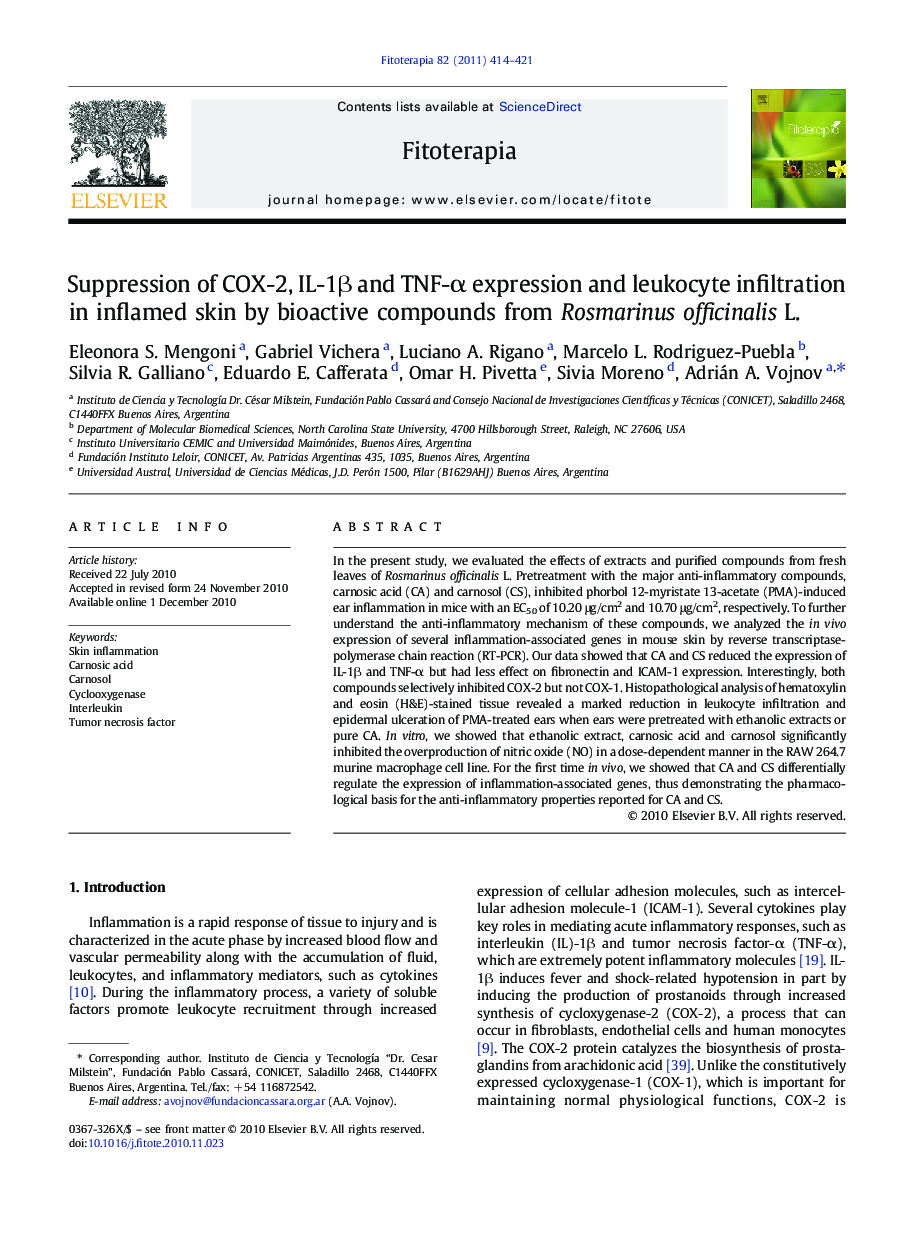| Article ID | Journal | Published Year | Pages | File Type |
|---|---|---|---|---|
| 2538855 | Fitoterapia | 2011 | 8 Pages |
In the present study, we evaluated the effects of extracts and purified compounds from fresh leaves of Rosmarinus officinalis L. Pretreatment with the major anti-inflammatory compounds, carnosic acid (CA) and carnosol (CS), inhibited phorbol 12-myristate 13-acetate (PMA)-induced ear inflammation in mice with an EC50 of 10.20 μg/cm2 and 10.70 μg/cm2, respectively. To further understand the anti-inflammatory mechanism of these compounds, we analyzed the in vivo expression of several inflammation-associated genes in mouse skin by reverse transcriptase-polymerase chain reaction (RT-PCR). Our data showed that CA and CS reduced the expression of IL-1β and TNF-α but had less effect on fibronectin and ICAM-1 expression. Interestingly, both compounds selectively inhibited COX-2 but not COX-1. Histopathological analysis of hematoxylin and eosin (H&E)-stained tissue revealed a marked reduction in leukocyte infiltration and epidermal ulceration of PMA-treated ears when ears were pretreated with ethanolic extracts or pure CA. In vitro, we showed that ethanolic extract, carnosic acid and carnosol significantly inhibited the overproduction of nitric oxide (NO) in a dose-dependent manner in the RAW 264.7 murine macrophage cell line. For the first time in vivo, we showed that CA and CS differentially regulate the expression of inflammation-associated genes, thus demonstrating the pharmacological basis for the anti-inflammatory properties reported for CA and CS.
Graphical AbstractCarnosic acid (1) and carnosol (2) are responsible for the potent topicanti-inflammatory activity of rosemary plant by suppression of IL–1β and TNF– α and selectively the COX–2 expression.Figure optionsDownload full-size imageDownload as PowerPoint slide
